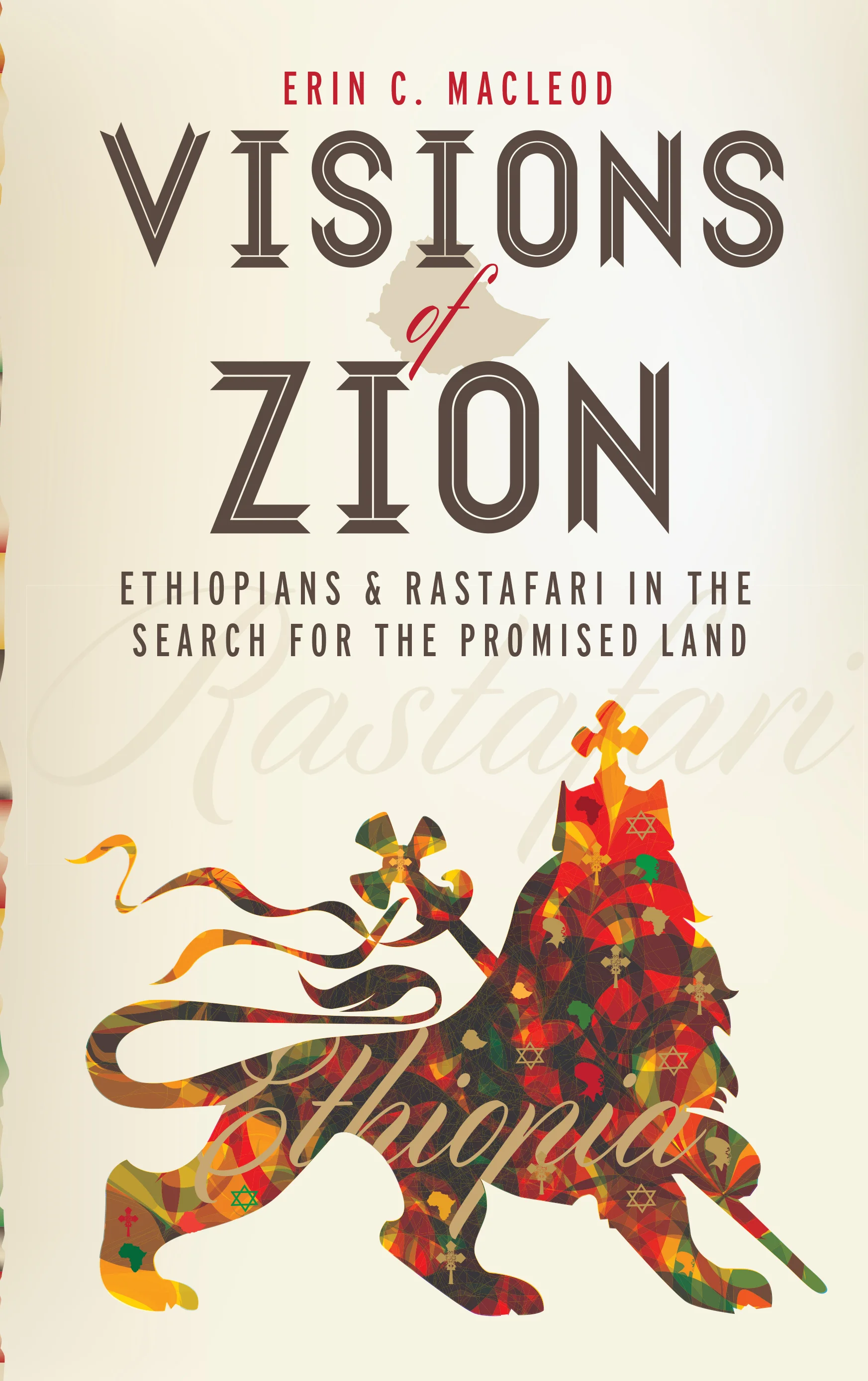Visions of Zion: Ethiopians and Rastafari in the Search for the Promised Land
Product Details
Hardcover: 288 pages
Publisher: NYU Press
Year: 2014
In reggae song after reggae song Bob Marley and other reggae singers speak of the Promised Land of Ethiopia. “Repatriation is a must!” they cry. The Rastafari have been travelling to Ethiopia since the movement originated in Jamaica in 1930s. They consider it the Promised Land, and repatriation is a cornerstone of their faith. Though Ethiopians see Rastafari as immigrants, the Rastafari see themselves as returning members of the Ethiopian diaspora. In Visions of Zion, Erin C. MacLeod offers the first in-depth investigation into how Ethiopians perceive Rastafari and Rastafarians within Ethiopia and the role this unique immigrant community plays within Ethiopian society.
Reviews
“Canadian scholar Erin C. MacLeod has written a thorough interdisciplinary analysis of Rastafari, the colorful, if very small in number, group of ferengis, mostly from Jamaica, who comprise an anomaly in present day Ethiopia.”
“The fact that it is the first published monograph in the English language on a long-overdue subject makes it a welcome contribution. Researchers will benefit immensely from its rich documentation of primary and secondary sources, as well as from its sporadic theoretical forays….To African countries overwhelmed by undocumented diaspora communities, either from refugee crises or from labor migrations, MacLeod’s concept of ‘ethnic citizenship’ provides food for thought that presents alternative possibilities of national belonging.”
“Examines the ways in which Jamaican immigrants to Ethiopia are received by the Ethiopians themselves. While the immigrant Rastafari view their presence in Ethiopia as fulfillment of a sacred repatriation, Ethiopians have received them with a variety of reactions, from tolerant acceptance or hopefulness for the resources they might bring, to outright hostility and scorn. MacLeod shows how Ethiopians make sense of the newcomers’ unique understanding of Ethiopian identity and their reverence for Ethiopian Emperor Haile Selassie. The way that she documents the Ethiopian engagement with and appropriation of Jamaican cultural arts makes this a valuable book for communication students in particular.”
“An engaging, probing, and definitive account of Ethiopia’s response to its Rastafarian ‘repatriates.’ This book is admirably human in its approach to the lofty subjects of immigration and national identity”
“Ethiopia has been for centuries a beacon for those in the New World who have considered themselves its descendants and exiles. But what happens when an imagined and narrated homeland is actually encountered? By deftly documenting in rich detail the complex negotiations of citizenship and belonging between immigrant Rastafarians and Ethiopians in multi-ethnic, multi-cultural Ethiopia, Erin C. MacLeod critically intervenes in the accepted paradigms of academic migration theories and popular perceptions alike by revealing the often difficult dialogues characteristic of African diaspora cultural politics.”
CA +1 876-309-1895 | erinmacleod@erinmacleod.ca
